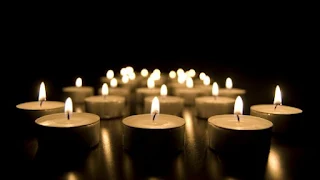Monday, 30 January 2023
Support the Strikes
Friday, 27 January 2023
Holocaust Memorial Day 2023: "Ordinary People"
In Germany, many individuals who were not ardent Nazis nonetheless participated in varying degrees in the persecution and murder of Jews, the Roma, the disabled, homosexuals and political prisoners.
There is no better example than the ordinary men of the Reserve Police Battalion 101. Five hundred policemen, most from Hamburg, most in their 30s and 40s - too old for conscription into the army.
Men who, before the war, had been professional policemen, as well as businessmen, dockworkers, truck drivers, construction workers, machine operators, waiters, pharmacists, and teachers. Only a minority were members of the Nazi Party and only a few belonged to the SS.
During their stay in Poland, these ordinary men participated in the shootings, or the transport to the Treblinka gas chambers, of at least 83,000 Jews.Ordinary people were witnesses; many cheered on the active participants in persecution and violence.
Sadly, most, ordinary people remained silent.
Cambodia,
Darfur,
Siebrenica,
Karabakh,
Liberia,
Sudan,
Holodonor,
Armenia,
the ethnic cleansing of indigeneous Palestinians,
The Indigeneous Peoples of America,
Checknya,
Congo,
India
and the genocide of slavery
and on and on and on.
Sadly there will always be individuals, organisations and regimes who want to exploit differences for their own ends and we must have the courage to speak out against hatred and intolerance where we see this happening. In a world which is increasingly fractured, where we have some leaders that are more interested in promoting division than harmony, it is vital we remember that there is far more that unites than divides the human race, to prevent a repeat of the horrors of the past, lets strive to work for equality , peace and justice for the whole of mankind. Be the light in the darkness.
Wednesday, 25 January 2023
Amser Cariadon / Lovers Time ( A Poem for Dydd Santes Dwynwen / St Dwynwens Day; The Welsh Patron Saint Of Lovers)
Sunday, 22 January 2023
Sajid Javid calls for patients to pay for GP and A&E visits
Monday, 16 January 2023
Holocaust survivor confronted Suella Braverman to say: your hateful language has consequences
Saturday, 14 January 2023
Rain
Thursday, 12 January 2023
Kiss a Ginger Day!
Tuesday, 10 January 2023
Splitting at the seams
Friday, 6 January 2023
Hunting the Wren
The worshipful animal is killed with special solemnity once a year; and before or immediately after death he is promenaded from door to door, that each of his worshipers may receive a portion of the divine virtues that are supposed to emanate from the dead or dying god. Religious processings of this sort must have had a great place in the ritual of European peoples in prehistoric times, if we may judge from the numerous traces of them which have survived in folk custom.
It may be that the wren stood as proxy for an ancient tradition where the annual king would be sacrificed at year’s end to ensure the abundance of the crops and animals in the year to come.Y neb a dorro nyth y dryw
Ni chaiff iechayd yn ei fyw
Whoever robs the wren’s nest shall
Never have wealth in his life
Thursday, 5 January 2023
The ancient tradition of Wassailing
the hero, far-hidden; no harp resounds,
in the courts no wassail, as once was heard.
The word Wassail also makes an appearance as a toast that occurred right before the Saxon battle of Hastings began in 1066 CE. An Anglo-Norman poet wrote that in the last feast before the battle he heard a cry of:
Pass the bottle and drink healthy
Drink backwards and drink to me
Drink half and drink empty.
But it goes deeper than this because Wassiling is not just a phrase, greeting, or a toast - it’s lots of different things. While the word Wassail can refer to the act of toasting, it can also represent the beverage that was drunk during the toast.
In very likeness of a roasted crab
And when she drinks, against her lips I bob,
And down her withered dewlap pours the ale.
One of the most popular Wassailing Carols went like this:
A Wassail Bowl
Here we come a-wassailing
Among the leaves so green,
Here we come a-wassailing,
So fair to be seen:
Love and joy come to you,
And to you your wassail too,
And God bless you and send you,
A happy New Year,
And God send you,
A happy new year.
By the Middle Ages, the practice of sharing a giant bowl of wassail—that is, the practice of wassailing—evolved from a holiday celebration to a form of boozy begging. “At Christmastide, the poor expected privileges denied them at other times, including the right to enter the homes of the wealthy, who feasted them from the best of their provisions,” Robert Doares, an instructor at Colonial Williamsburg, explained. The poor would either ask to sip from their rich neighbor’s wassailing bowl or would bring their own bowl, asking for it to be filled. According to Doares, “At these gatherings, the bands of roving wassailers often performed songs for the master while drinking his beer, toasting him, his family, his livestock, wishing continued health and wealth.” The original of Here We Come a-Wassailing are quite upfront about what’s going on:
We are not daily beggars That beg from door to door But we are neighbours’ children Whom you have seen before.
Not all rich folk were happy to see wassailers at their doorstep. One 17th century polymath, John Selden, complained about
"Wenches … by their Wassels at New-years-tide ... present you with a Cup, and you must drink of the slabby stuff; but the meaning is, you must give them Moneys.”














